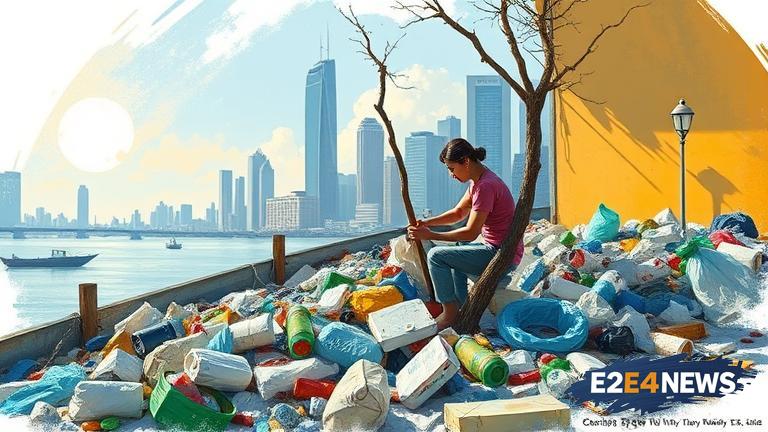Hanoi, the capital city of Vietnam, has launched a series of initiatives to reduce plastic waste and promote a plastic-free future. The city’s authorities have introduced a range of measures, including a ban on single-use plastics, to minimize the amount of plastic waste generated. The move is part of a broader effort to protect the environment and promote sustainable development. Hanoi’s plastic-free initiative has been welcomed by residents and businesses, who are eager to contribute to the city’s environmental goals. The city’s authorities have also launched a public awareness campaign to educate residents about the dangers of plastic waste and the importance of reducing, reusing, and recycling. Additionally, Hanoi has introduced a number of incentives to encourage businesses to switch to eco-friendly alternatives. The city’s plastic-free initiative is expected to have a significant impact on the environment, with a reduction in plastic waste predicted to improve air and water quality. The initiative is also expected to promote sustainable development and support the city’s economic growth. Hanoi’s authorities have set a target to reduce plastic waste by 50% by 2025 and to completely eliminate single-use plastics by 2030. To achieve this goal, the city is investing in waste management infrastructure, including recycling facilities and composting plants. The city is also working with local businesses and organizations to promote sustainable practices and reduce plastic use. Furthermore, Hanoi is encouraging residents to adopt a more sustainable lifestyle, by reducing their use of single-use plastics and increasing their use of reusable bags, containers, and water bottles. The city’s plastic-free initiative has been recognized internationally, with Hanoi being named as one of the cities leading the way in the fight against plastic waste. The initiative has also inspired other cities in Vietnam to follow suit, with many launching their own plastic-free initiatives. The Vietnamese government has also introduced a number of policies to support the reduction of plastic waste, including a ban on single-use plastics in all government offices and public institutions. The government has also launched a national awareness campaign to educate the public about the dangers of plastic waste and the importance of reducing, reusing, and recycling. In addition, the government has introduced a number of incentives to encourage businesses to switch to eco-friendly alternatives, including tax breaks and subsidies. The reduction of plastic waste is a major priority for the Vietnamese government, with the country generating over 2.5 million tons of plastic waste per year. The government has set a target to reduce plastic waste by 75% by 2030 and to completely eliminate single-use plastics by 2050. To achieve this goal, the government is investing in waste management infrastructure, including recycling facilities and composting plants. The government is also working with local businesses and organizations to promote sustainable practices and reduce plastic use. Moreover, the government is encouraging residents to adopt a more sustainable lifestyle, by reducing their use of single-use plastics and increasing their use of reusable bags, containers, and water bottles. The reduction of plastic waste is not only important for the environment, but also for the economy, with the production and disposal of plastic waste costing the country millions of dollars per year. By reducing plastic waste, Vietnam can save money, create jobs, and promote sustainable development. In conclusion, Hanoi’s plastic-free initiative is a significant step towards a more sustainable future, and a model for other cities to follow. The initiative has the potential to make a major impact on the environment, and to promote sustainable development and economic growth. With the support of the government, businesses, and residents, Hanoi can achieve its goal of becoming a plastic-free city, and inspire other cities to do the same.
